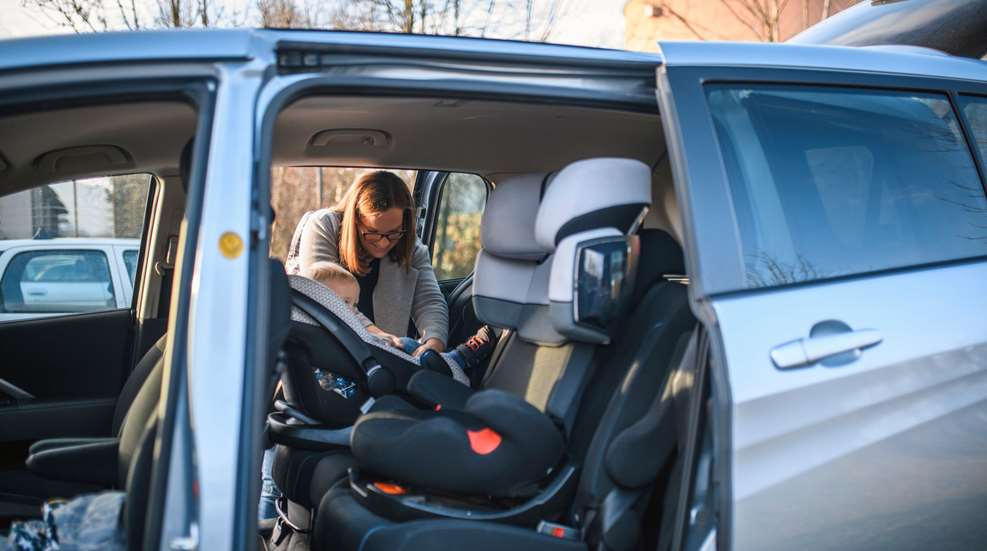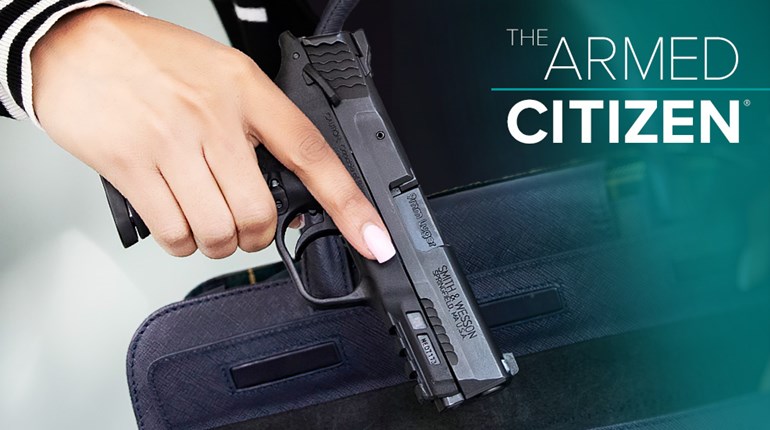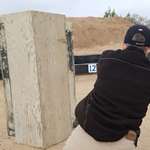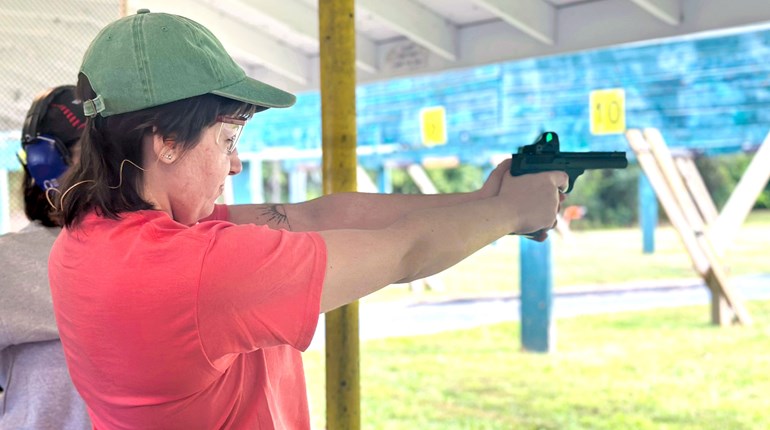
So you’ve made the decision to own or even carry a firearm as a means of personal protection. Congratulations for taking charge of your own safety! Now, if you’re new to the self-defense community—or even if you’ve been around a while but haven’t really given things much thought—there are a series of questions I want you to ask yourself.
And be honest here. Some of these are really tough issues you will wrestle with, and some might reveal weaknesses or holes in your plan (or your personal resolve) that you’ve been ignoring. We’ll sort these questions into three categories: Questions to ask yourself now, while you’re calm and you have plenty of time to think them through; questions you ask routinely and repeatedly as you move through the world; and one ultimate question you should contemplate regularly.
Questions to Ponder Over Time
These are things to think about now, when you’re in no danger and you have plenty of time to mull over the serious answers and very real consequences.
Am I really willing to take potentially lethal action to save lives? It’s easy to say “of course,” but take time to seriously contemplate the messy, traumatizing physical reality of using lethal force on another human being.
If yes, under what conditions? How do you feel about using lethal force to save your own life? To save your children’s lives? To save a stranger? To protect your possessions? (Hint: That one is generally a “no.”)
What are my lines in the sand? Every situation is fluid, so you can’t decide ahead of time on one single “OK, now I’ll pull my gun” trigger. But you can determine what you won’t allow. For example, you might decide you will not allow yourself to be moved to an alternate location, and you’ll fight to the death to prevent that from happening. You might (almost certainly will) decide that you won’t surrender your vehicle to a carjacker with your children in the backseat. You might (should) decide that your purse, your unoccupied vehicle or your phone is not worth a lethal-force fight.
Am I prepared for the potential legal aftermath? If you use your firearm in self-defense, there will be at least some involvement with the police afterward, and possible involvement with the court system that could stretch out for years. How do you plan to pay for that? It might be wise to consider a self-defense-specific legal plan (which is not “self-defense insurance”) or an attorney on retainer.
Is my physical fitness limiting my self-defense options, and if so, what can I do about it? If the answer is yes, do what you can to improve your situation. If the answer is no—you’re dealing with a disability or something else that limits your ability to run or to react physically—then spend some time contemplating the self-defense options you do have.
Do I have basic first-aid skills? Knowing how to use a tourniquet, pack a wound and perform CPR will prepare you for a lot more than just self-defense situations.
What defines “my circus” and “my monkeys?” You’ve heard the expression, “Not my circus, not my monkeys.” This sums up my personal self-defense philosophy—if it’s not my business, I’m not going to make it my business. I’m no sheepdog! But you might be, and that’s great for you. Again, every situation is different, but put some time into thinking about whether you’re out to save the innocent or to simply get home to your family at night.
Routine Questions to Ask Repeatedly
As you move through the world every day, there are some questions you can ask yourself regularly that will help you maintain that much-talked-about situational awareness, keeping you in condition yellow.
Who is around me and what are they doing? No need to make a big thing of this or memorize the face of every person you pass, but do notice who’s in your vicinity and screen them for any weirdness that pings your radar.
Where are the exits and the cover? Have a plan to exit any space other than the way you came in, as much as possible. That might include windows and a plan to break them if needed. Also note any cover and concealment. This scan should only take you a couple of seconds, and it forms the basis of a plan in case anything goes sideways.
What’s abnormal in this situation? Ask yourself if anyone or anything around you doesn’t make sense for the circumstances. Who’s wearing a heavy jacket in August? Is a normally busy place strangely quiet? Who’s wandering aimlessly in a place where people normally head straight from one spot to another (like parking lots)? Who doesn’t fit the circumstances—a childless guy at the playground, a dogless stranger at the dog park, etc.
If something was going to go wrong here, what would it be? Many acts of violence are just random (or seemingly so), but some can be predicted with a little forethought. If you’re at a bar, the most likely form of violence is probably someone getting drunk and taking a swing at someone else, with you getting caught in the middle. If you’re at a political protest, a crowded music festival, the bank, or somewhere else, take a second to think about the most likely way violence would kick off. This helps you avoid normalcy bias and shortens your reaction time if something does go wrong.
And the Ultimate Self-Defense Question
You’ll take some time to contemplate the first set of questions, but eventually they become an asked-and-answered thing that you don’t think of regularly. The second set of questions you’ll ask routinely for the rest of your life. But this last question is one you should ask every day, and the answer might change every day.
It’s simple, but profound: If I knew I’d be defending my life tomorrow, what would I do today to prepare for it?
This is a heavy question. The trick is to use it as motivation, not as a guilt trip. There’s always more we could be doing, and if personal defense was the only thing we had to worry about, we’d spend all day training instead of taking care of our families, ourselves, our homes, our jobs, and everything else we have to prioritize in life. That’s obviously unrealistic.
But you can use this question as motivation to do just a little bit more. Maybe I’ll do 10 minutes of dry-fire practice. Maybe I’ll unload my gun and practice drawing it from my purse or from underneath my t-shirt. I might clean the gun because I’ve been putting that off and it’s past time, anyway. Perhaps I’ll invest in a box of quality self-defense ammo instead of the cheap stuff, take a trip to the range instead of watching Netflix on Sunday afternoon, or start a new savings account so I can afford that training course I’ve been wanting to take for years but keep putting off. In extreme cases, I might even change my plans and decide to go to the movie that ends at 8:30 instead of the one that will have me out past midnight on the questionable side of town.
And if you’re like me and you carry the gun sometimes or most of the time but not all the time, asking the question “If I knew I’d be defending my life tomorrow, what would I do today to prepare?” can help remind you to carry more often. After all, the first rule of a gunfight is “Don’t get in one,” but the second rule of a gunfight is “Have a gun.”
—Jo Deering















































